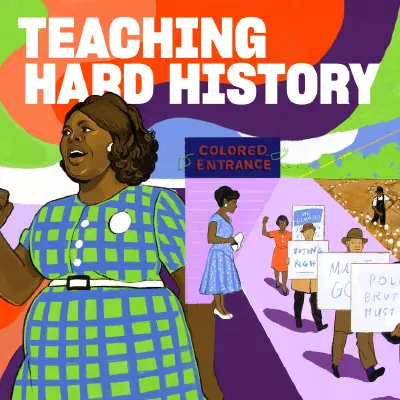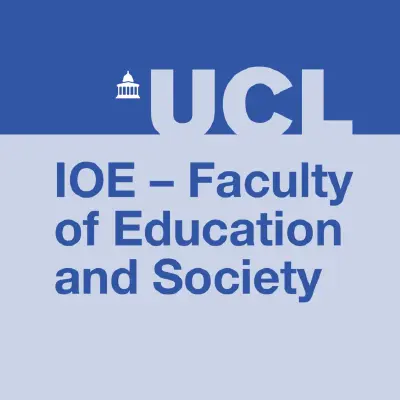Podcasts about Courses
Episodes about Courses
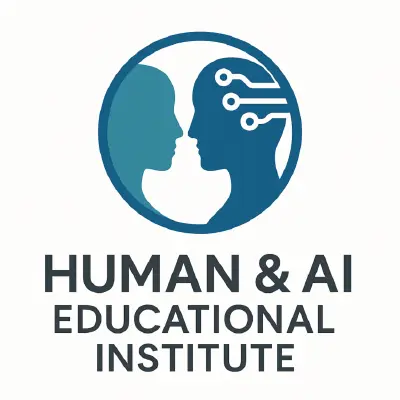
This powerful episode takes listeners on a journey through the soul of Iran—its rich ethnic diversity, profound spiritual history, breathtaking artistry, and the luminous future foreseen in the Bahá’í Writings. Blending historical depth with visionary hope, this podcast offers scholars, educators, and seekers a thoughtful exploration of a country long seen as both cradle and crucible of civilization. Curated for global audiences in partnership with the Human-AI Educational Institute.

//The Wire//2300Z July 10, 2025////ROUTINE////BLUF: MERCHANT VESSELS SUNK IN RED SEA. FLOODING CONTINUES AROUND THE UNITED STATES.// -----BEGIN TEARLINE------International Events-Red Sea/HOA: Two commercial vessels have been sunk off the coast of Yemen by Houthi forces over the past few days. On July 6th, the M/V MAGIC SEAS was struck by cruise missiles and Unmanned Surface Vessels (USVs), which was rapidly followed up with small arms and RPG attacks via militants in small boats. The next day, the M/V ETERNITY C was attacked in a similar manner. Both vessels suffered severe flooding, finally sinking overnight.-HomeFront-Washington D.C. - This morning the FDA granted approval for Moderna's new "Spikevax" COVID-19 vaccine for children 6 months old to 11 years old. Following concerns expressed by the agricultural community, the USDA has reversed their stance on allowing cattle to be imported from Mexico. The decision to re-close livestock imports was made following a new infestation of New World Screwworm (NWS) being reported at a higher latitude than previously disclosed by Mexican officials, and that NWS was present in herds of livestock much closer to the US/Mexico border than previously known. As of right now, all ports of entry are closed to Mexican cattle, while the parasite continues to spread throughout Mexico.Southern USA: Flooding incidents remain constant as severe weather systems continue to develop throughout the region. More severe flooding was reported throughout North Carolina, with water rescues continuing in Durham and many downed trees causing power outages. The Graham–Mebane Water Treatment Plant went offline due to flooding damage, causing a brief water shortage throughout the city of Mebane.The flooding recovery in Texas continues as the total casualty count climbs to 120x fatalities and around 173x people still being unaccounted for. In New Mexico, 3x fatalities were reported as a result of the floods over the past few days, as flash floods struck the town of Ruidoso.-----END TEARLINE-----Analyst Comments: Heavy rain is still being forecast for many areas throughout the American South and along the east coast for the next few days. Considering the rain that has already fallen, in many areas the ground is already saturated, making flooding and landslides much more of a risk. Now is the time to prepare, and consider the impact of weather events becoming much more severe than originally forecast.Analyst: S2A1Research: https://publish.obsidian.md/s2underground//END REPORT//
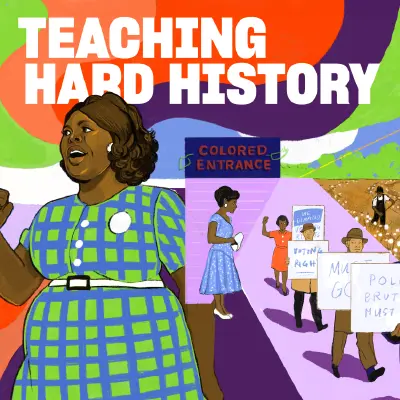
When we think of slavery as a strictly Southern institution, we perpetuate a “dangerous fiction,” according to historian Christy Clark-Pujara. Avoid the trap with this episode about the role the North played in perpetuating slavery and the truth behind the phrase “slavery built the United States.” Join host Hasan Kwame Jeffries, Ph.D., and Learning for Justice, a project of the Southern Poverty Law Center (SPLC). (This episode originally aired in Jan. 2018.) Visit the new resource page for this episode (2025), which includes essential ideas from the conversation, teaching recommendations and updated resources. A complete transcript is also included.

Jul 09, 2025
385: Re-engaging Rusty Readers: A Stamina Building Lesson
The Spark Creativity Teacher Podcast | ELA ❭
There's a lot of conversation happening lately around student reading stamina. Rose Horowitch's Atlantic article, "The Elite College Students who Can't Read Books," helped stir the pot. I'm sure you've seen evidence of the same issues she brings up - that students are struggling to stay focused through books, and often come to you having read a lot of excerpts and short pieces rather than full novels. Test-prep, phone culture, COVID - there are all kinds of reasons, but the bottom line for you as a teacher is, what can you do about it? Today's request for our new "Plan My Lesson" series comes from a teacher looking for ways to help her students build their reading stamina. She's wondering how she can help her students work toward longer reads and more of 'em. Perhaps you're wondering the same? This is a big question, and we're just planning one lesson. But let's zoom in on a snapshot of a class that could help students move toward longer, more-engaged reading sessions. We'll start, like The Odyssey, in medias res. Related Links: Episode 196: How Caitlin's Verse Novel Book Clubs Engaged Seniors 'Til the End: https://nowsparkcreativity.com/2023/06/how-caitlins-verse-novel-book-clubs-engaged-seniors-til-the-end.html How to Host a Book Tasting: https://nowsparkcreativity.com/2019/03/how-to-host-book-tasting-free-resource.html Episode 204: Students Need Diverse Texts and Choice, with Dr. Claudia Rodriguez-Mojica and Dr. Allison Briceño: https://nowsparkcreativity.com/2023/07/students-need-diverse-texts-and-choice-heres-help.html The Dos and Don'ts of Donors Choose: https://nowsparkcreativity.com/2019/01/the-dos-and-donts-of-donors-choose-for.html Go Further: Explore alllll the Episodes of The Spark Creativity Teacher Podcast. Launch your choice reading program with all my favorite tools and recs, and grab the free toolkit. Join our community, Creative High School English, on Facebook. Come hang out on Instagram. Enjoying the podcast? Please consider sharing it with a friend, snagging a screenshot to share on the ‘gram, or tapping those ⭐⭐⭐⭐⭐ to help others discover the show. Thank you!

Show Notes: slpnow.com/223Feeling overwhelmed by the referral process? You’re not alone, and there is a better way. In this episode, I’m walking you through five simple but powerful questions to help you audit your current referral workflow. Whether you’re chasing down forms, drowning in springtime referrals, or just winging it with every new case, this quick audit will help you spot what’s working—and what’s not.

Want to share your feedback? Send us a message!Ali Berquez, MSc, PG Dip CT (Oxon), BRIEF Cert. SF Practice, Clinical Lead at the Michael Palin Centre for Stammering (MPC) in London, joins host Sara MacIntyre, M.A., CCC-SLP, to take listeners behind the scenes of group therapy for young people who stutter (stammer) and their parents. Think of this episode as a deep dive into the nuts and bolts of setting up, cultivating, and successfully facilitating group therapy.Ali shares the rich history and evolution of group work at MPC, highlighting its unique benefits and common challenges. She offers practical guidance on planning and structuring groups, effective facilitation strategies, and building in opportunities for ongoing support after the group ends.Woven throughout are powerful reflections from young people and parents, as well as specific activities and examples—making this episode a valuable listen for clinicians at any stage of their group therapy journey.Resources mentioned:Desensitization with Parents Podcast EpisodeSolution Focused Brief Therapy and Clinical Supervision WebinarSolution Focused Brief Therapy with Children and Young People who Stammer and their ParentsMichael Palin Centre Training OpportunitiesAli Berquez is Clinical Lead at the Michael Palin Centre for Stammering in London, UK. She works with clients of all ages who stammer and/ or clutter, including adults. As is a qualified practitioner in Cognitive Behaviour Therapy and Solution Focused Brief Therapy and integrates these methods into her clinical work with children, young people, parents and adults. Ali is an experienced trainer who regularly delivers courses in the UK and internationally (including the Stuttering Foundation’s annual Eastern Workshop in Boston). She is involved in writing, offering clinical supervision and contributing to research projects and recently completed an accreditation in clinical supervision. She is part of the scientific committee for the Oxford Stuttering and Cluttering Research Conference and a certified European Stuttering Specialist.
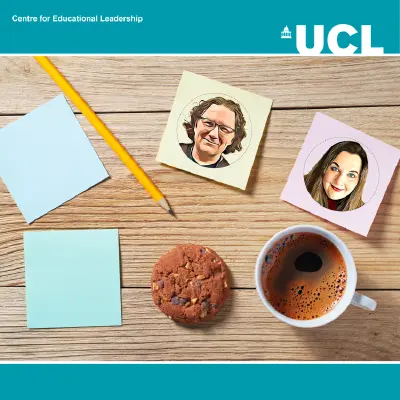
What does supporting teacher wellbeing look like? And how can school leaders create a culture of wellbeing?Samantha O'Sullivan's research finds that teacher wellbeing is found in authentic recognition of their work, appropriate CPD, time to do the job well, good colleague relationships, and autonomy to make decisions for themselves.In other words, all things that leaders can influence for the better."Good leadership is what's supporting wellbeing... The core, the centre of it, is a culture of good strong leadership."Full show notes and transcript: https://www.ucl.ac.uk/ioe/news/2025/jul/wellbeing-dont-give-me-things-pretty-my-life-staffroom-s05e05

In this episode, Chris sits down with the one and only Teri Wilkinson! Her path to Infinite Banking — and ultimately to finding the Life Success & Legacy team — is both inspiring and unique. Teri also happens to be the namesake behind the now-famous DIBS term “Ter’i’aki”! Tune in to hear her story, her […]
The post Interview with Teri Wilkinson appeared first on Life Success Legacy.

Phil Neve explains what Passivhaus Premium is and why he chose to target the standard for his own self build in Somerset. He also talks through his biggest project challenge, which was obtaining planning permission to build in open countryside. Check out the show notes for more information.

